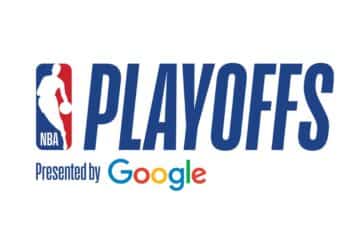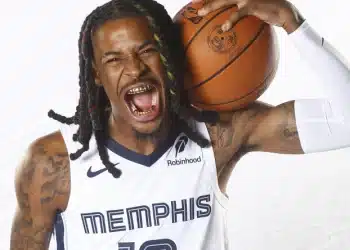By: Zachary Draves
In 1992, a dream came true. In 2004, that dream became a nightmare. In 2008, that dream was redeemed.
It has almost been 15 years since the 2008 US Men’s Olympic Basketball team went to Beijing and recaptured America’s dominance on the global hardwood in dramatic and convincing fashion. After a devastating bronze medal performance in the 2004 Athens Olympics, it was becoming evident that Team USA was losing its century old grip on international basketball. It wasn’t enough to have 12 NBA superstars playing together and it being a complete given because by this time countries such as Spain, Argentina, Greece, and Lithuania had NBA players too and were caught up.
Things had to turn around and it started from the top. First, USA Basketball hired Jerry Colangelo as director, who had an extensive background as a scout including a stint with the Chicago Bulls dynasty of the 1990’s. Then, there was the hiring of Duke’s Hall of Fame Coach Mike Krzyzewski who not only spearheaded the dominance of the Blue Devils during his tenure, but was able to foster a true team atmosphere absent of egos run amok.
In terms of talent, LeBron James, Carmelo Anthony, Dwayne Wade, and Carlos Boozer all played together in 2004 but the majority of the roster was completely revamped. There were the additions of Dwight Howard, Chris Bosh, and Chris Paul who were becoming venerable young talents at that time. But perhaps the most consequential addition was that of the late Kobe Bryant, who would essentially be the straw that stirred the drink.
His unequentionsed talent and desire to win plus his maturity easily earned the position of captain. As a result, the team followed his lead, embraced the philosophies of Coach K, and won all eight of their games in Beijing en route to the gold medal.

(Courtesy: Getty Images)
Now that journey back to greatness is being relived in an upcoming Netflix documentary entitled The Redeem Team directed by veteran filmmaker Jon Weinbach with LeBron and Wade serving as executive producers with the backing of LeBron’s production company Uninterrupted and set to debut on October 7.

(Courtesy: Youtube)
In an interview with NBS, Weinbach shares what drove him to make this project, what stood out to him during the process, his reflections on the team itself, and what he hopes audiences will take away from this story.
ZD: What made you want to tell this story?
JW: Let me count the ways. I’m a basketball fanatic. I watched this team. I’m a massive geek about the Olympics. I had the incredible good fortune to work on this series of Olympic documentaries. I’m no longer mainly in sports media, I’m the president of Skydance sports but worked for the last nine years with Mike Tollin and we had this partnership with Frank Marshall to tell these Olympic stories. We had done 7 or 8 films at this point and we were looking at an American story, or a basketball story, both. I give the nod to Jonahtan Vogel, great friend, former colleague, and co-producer on the film. He didn’t walk in, he was like “2008 gold medal game against Spain is one of the five best games ever played.” I was like “I’m buying that!” I felt that team was overlooked and specifically as an LA native and Lakers fanatic I felt that Kobe’s role was overlooked. So that was the gestation of it in terms of we have this partnership and we have this story to tell.
ZD: Why do you think this team has been overlooked?
JW: I think there are a couple of reasons. One, is the nature of Olympic footage which is challenging to see. So it is not like this game is being replayed on NBA tv at all hours of the day. Two, is at the time it was overlooked because when most people think of the 2008 Olympics they think of Michael Phelps, Usain Bolt, and they think of China. That was China’s opening to the world and it was like “oh by the way we won the gold medal in basketball.” The game itself took place at 3:00 in the morning and so it wasn’t this shared experience. They moved events like Michael Phelps and gymnastics to primetime in the United States. All of that and also these were icons who then 2009 Lakers win the championship, 2010 Lakers win the championship, 2012 Heat wins the championship, 2013 Heat wins the championship. It became in a certain way overlooked on the resumes of these guys. All of that and also the culture we live in where everybody forgets everything immediately. I think to a certain degree they didn’t get the shine they earned.
ZD: While you were making this documentary, did you learn anything new and if so what was it?
JW: I think you always learn something new with every experience. I have had the great fortunet of interviewing great athletes over the course of my career. What struck me on this project from the interviews was the incredible grace, humor, authenticity, emotion, affection for one another when recounting this experience. On the footage front and discovery front, the sections were the Team USA training camp between the players. I think that Coach K moments were my favorite. Just because as successful as he is and as iconic as he is, I don’t know that you have seen a more authentic, more entertaining, make you love him more depiction of Coach K then you see in some of these scenes. He’s profane, he’s funny, he’s authentic, he makes fun of himself. It’s like “oh this is the guy that wins the championships.” So that was as a basketball junkie just unbelievably fun.
ZD: I really got the sense that this team really gelled together right away, could you explain that?
JW: I can go one step further. Nothing gets you together like losing. When you lose together and when that same group comes back and wins together that is a powerful unifying force. Also they spent a lot of time. 2006, 2007, 2008 it was almost like summer camp meet the playoffs. There was a real shared mission. In the case of Dwade, Melo, Boozer, and LeBron, they had been together on the ‘04 team. These guys have been together and there was a shared experience, like a family thing, that was unique. The Dream Team was incredible, a once in a lifetime thing, and also the timing element. At that time, the Soviet Union, Yugoslavia, maybe one other country was good at basketball besides the United States. It was a different world in 2008. You had a series of great international teams, Spain, Greece, Argentina. These were great teams. I think it was just a totally different world.
ZD: I was wondering if you could talk about how instrumental Kobe was to the Redeem Team? Also, what was it like to recapture his essence two years after his untimely passing?
JW: Very emotional. I felt a lot of responsibility to tell the story well. In terms of his contribution to the team, I think Dwayne Wade and all of them described it well both in the film and in discussions around this film, he needed him and they needed him. Together they made this really beautiful partnership as a team. That is the part that is the core of the story is that it is a fascinating portrait in team building. All those specific arcs of redemption on the court, sometimes off the court, extending to Coach K and Jerry Colangeo. I think Kobe was that element that took them to the gold. His entry to the team was needed and that was really a fascinating thing to look back on.
ZD: What do you hope people will take away from this team and how would you put the Redeem Team into that eselange of Olympic greatness and excellence?
JW: I hope they enjoy the film and that’s number one. I hope this resonates not just with basketball fans but with everyone around the world on just how candid, emotional, funny, and meaningful this experience was for the guys and how they reflect that in their interviews. I think it is sort of a portrait in team building, it is really a divisive time we are in now and how sports has the power to bring people together. That is what I have been devoted to my whole career is using sports as a lens to tell human stories. I think that is what I hope people will get out of it. In terms of their ranking, the Mount Rushmore conversation, listen I’m a Magic guy, I’m a Kobe guy so this is a tough one for me. So I think this team has its own specific place. It came at a unique time; it’s a unique group. I don’t know who would win, who’s playing, who’s the official. All I know is that it would be a great game. Also the 2012 team would be a great team too. So that is probably in my view the three best 1992, 2008, and 2012. But it would be a great game.


 NFL
NFL






Comments 1